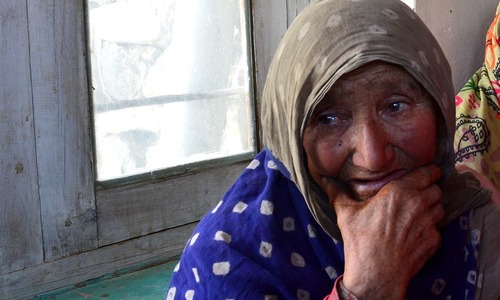THE continuing danger in the region has been bloodily underlined by ongoing violence along the Line of Control.
The violence has claimed the lives of four individuals, including two soldiers, in Azad Kashmir in what Pakistani authorities have described as unprovoked Indian attacks across the LoC.
India alleges that there have been several casualties on its side of the LoC, though this claim remains unverified as there are very few settlements along the LoC in India-held Kashmir.
Locals residing nearest to the LoC have had to either evacuate or retreat to bomb shelters.
Explore: 'We nearly die when we hear the guns': Families near LoC rush to build bunkers as fears grow
The peace gesture that Prime Minister Imran Khan had announced and has delivered with the repatriation of the captured Indian pilot on Friday evening does not appear to have had an immediate positive impact on the government of Prime Minister Narendra Modi.
While there has been much focus on the statements of security strategists, war architects and cheerleaders for belligerent state action, it is important to not lose sight of the very human cost of conflict that is being inflicted on the people of the Kashmir region.
Read more: Who are the real victims of India-Pakistan tensions? It's Kashmiris
Yesterday, a BBC journalist tweeted pictures and a video of what he described as a “heartbreaking” situation in Azad Kashmir. The journalist filmed and photographed homes that were destroyed in Indian attacks across the LoC, the efforts of a lifetime, perhaps generations, wiped away in a moment.
From Kotli, the journalist showed a picture of three young boys lying injured on adjacent hospital beds and wrote the following: "These three brothers lost two siblings and their mother when their house was hit this week. The neighbours who rescued them can’t bring themselves to tell them their mother is dead ... their father died years ago (not in cross-border firing) so they’re orphans now."
Meanwhile, families across the LoC continue to suffer because of the repressive tactics by the Indian state. The situation of the Kashmiris is indeed heartbreaking.
Read more: The human cost of Indian shelling across the LoC
The past week has seen South Asia and the world once again confront the possibility of an unthinkable war between India and Pakistan breaking out.
That outright war will inflict incalculable losses has been brought vividly into focus by all right-thinking and sensible people in the region and beyond. But even in the absence of a war, the ongoing violence along the LoC demonstrates that misery and hardship can be inflicted on local populations in the name of esoteric theories, policies and tactics.
Perhaps few actions are as futile as the LoC attacks that continue with no end in sight.
It cannot be emphasised enough that it is the Kashmiri people who are suffering — in the name of defending the area.
The LoC violence must cease forthwith, the weapons must fall silent and the locals must be allowed to return to a semblance of a normal life.
Published in Dawn, March 3rd, 2019













































